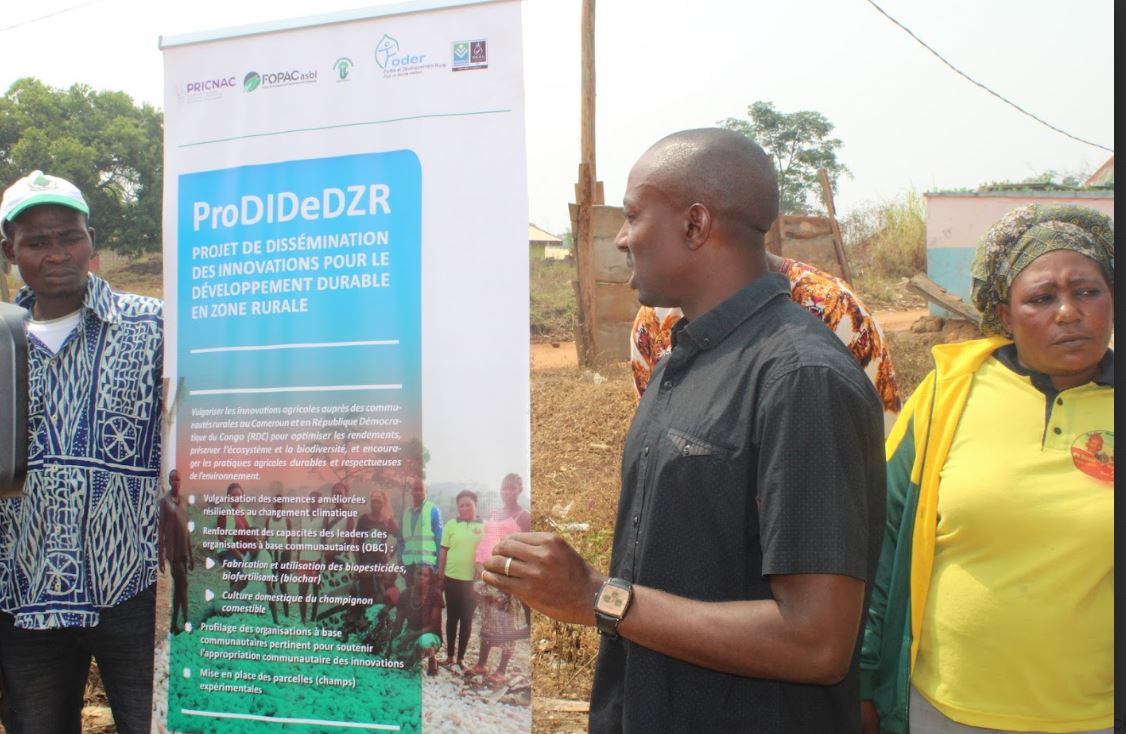After a preparatory mission to define the project’s area of intervention and the beneficiary organizations, the team from the project for the dissemination of innovations for sustainable development in rural areas (ProDIDeDZR) in Cameroon set off for the launch workshop held on March 21, 2024 in Ngambé-Tikar. ProDIDeDZR, a third-party project of PRICNAC, is being implemented in the DRC (FOPAC) and Cameroon (Assainissement and FODER).
The workshop aimed to achieve three results:
- A thorough understanding of ProDIDeDZR acquired by participants, including a clear knowledge of its objectives, activities and projected timetable.
- An in-depth analysis of the environmental and economic implications of agricultural innovations in the specific context of increasing maize production, highlighting the main challenges and opportunities identified.
- A documented list of problems identified, suggestions made and recommendations made by beneficiaries and stakeholders, providing crucial information to guide and ensure the continued success of the ProDIDeDZR project is drawn up.

A presentation of the project enabled participants to understand the project’s objectives and activities, and the challenges faced by rural communities in adopting innovations for sustainable development.
Innovations included the biochar technique, improved corn seeds, myciculture and beetle breeding. The 41 participants included government officials (Ngambé-Tikar district agricultural delegate), women leaders and members of the CBOs benefiting from the project (16 women), young people (12), representatives of civil society (06, including 02 women) and the media (06).
Emphasis was placed on methodology. It will be participatory, with emphasis on andragogical approaches, focus groups and brainstorming during training sessions and other meetings. With regard to setting up experimental plots, four (04) plots of 250 to 500 square meters will enable communities to see the importance and contribution of innovations (biochar and improved seeds) in improving productivity, protecting the environment and reducing the drudgery of work.
